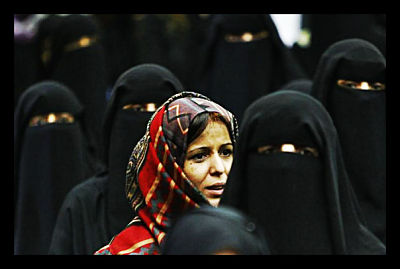
The takeover of certain regions in Syria by extremist groups has caused a significant regression in gender equality. In particular, the groups Jabhat al-Nusra and the Islamic State of Iraq (ISIS), which may be linked to al-Qaeda, have taken advantage of the country’s vulnerable state due to the tumultuous civil war.
Jabhat al-Nusra and the ISIS have implemented their interpretations of Sharia law, which is law based on the religion of Islam. This has placed discriminatory regulations, particularly on women, violating Syrian laws that generally promote gender equality. Although there have been flaws within the Syrian constitution, specifically regarding marriage and divorce rights in previous years, the current occupation of extremist groups has essentially ripped away women’s rights to dress, move and practice the religion of their choice.
Some of these restrictions include forcing women to wear a veil, or what is formally known as a hijab, and to wear a full-length robe, called an abaya. Despite the variety of religious identities within Syria, such as Alawite, Armenian Christian, Syriac Christian as well as Sunni and Shia Muslim, these extremist groups are pressuring women to wear Islamic garb only, with serious consequences if they do not obey.
The punishments for not being compliant include being denied access to public transportation and education. These women are furthermore, unable to leave the house and complete simple tasks necessary for survival, such as buying food. Punishment has also gone as far as to include the abduction of women by Jabhat al-Nusra and ISIS fighters in numerous regions such as Aleppo, Hassakeh and Raqqa. These women are living in fear and are completely dependent on male family members. They are unable to live their lives as they did before, as their basic freedoms have been jeopardized.
This has all not gone unnoticed, however, as several Syrian grassroots activists have, in fact, been demanding resolution in accordance with the United Nations. Specifically, Syrian activist Kefah ali Deeb spoke out at the UN conference in Geneva this past week demanding the representation of women during peace talks. She has, through these peace talks, been placed in a position to provide a voice for unheard Syrian women and children in hopes of influencing the enactment of nondiscriminatory laws.
As ali Deeb puts it, “women must be heard because no less than 80[%] of all 9.3 million Syrians who need aid are women and children.” The UN meeting in Geneva, furthermore, gave ali Deeb a platform to speak of the harsh restrictions in place and to stress the importance of appointing a gender advisor to stabilize the current situation in Syria.
The women’s conference provided a great opportunity for ali Deeb, as she was able to describe the horrors occurring in her country, stating, “we cannot remain silent regarding events unfolding in Syria such as daily death, massive destruction, starvation of people and displacement of hundreds of thousands of Syrian families, in Syria and abroad, as well as the spread of terror, of violence, ongoing detentions, acts of kidnapping, destruction of infrastructures and the spread of diseases, particularly among children.”
Syrian women have thus formed a team in Geneva to consult with peace negotiators, as to fulfill the need for representation of the whole population during the peace talks. A gender advisor is vital to restoring equality in Syria to ensure that women take back the freedoms they once enjoyed. Now more than ever, women need representation to help them regain their rights and extinguish the turmoil in Syria.
– Danielle Warren
Sources: Human Rights Watch, Washington Post
Photo: Thomson Reuters Foundation
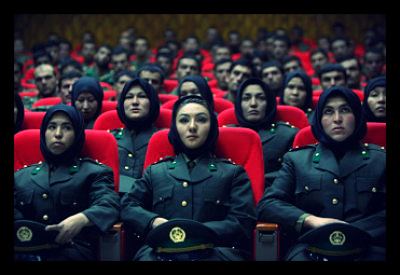

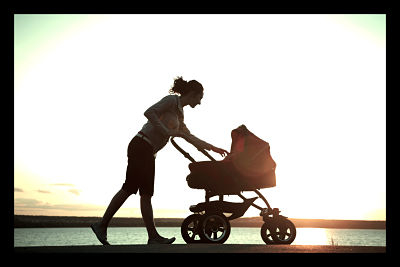

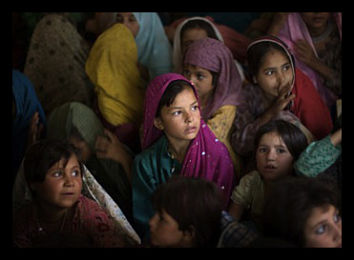
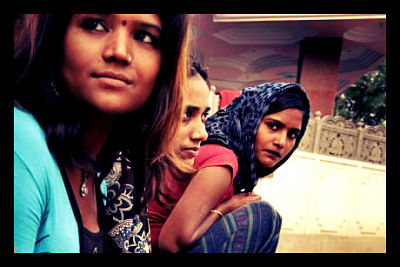 Global Citizen has recently launched a new initiative called It Takes Two – its goal is to spread awareness of the necessity of contraceptives and family planning for millions of women around the world that currently have no access to these programs. In developing countries, complications from pregnancy and childbirth are some of the leading causes of death for women. Early and frequent pregnancies also prevent women from advancing their opportunities for education and economic self-sufficiency.
Global Citizen has recently launched a new initiative called It Takes Two – its goal is to spread awareness of the necessity of contraceptives and family planning for millions of women around the world that currently have no access to these programs. In developing countries, complications from pregnancy and childbirth are some of the leading causes of death for women. Early and frequent pregnancies also prevent women from advancing their opportunities for education and economic self-sufficiency.
